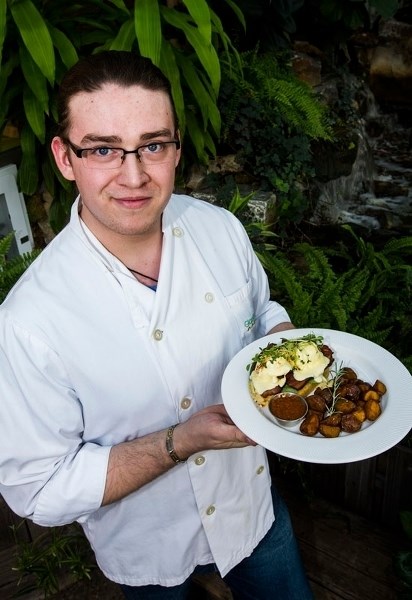Alberta can grow local jobs and up to half its annual vegetable needs if it invests in local food production, says a renowned food policy analyst.
About 220 farmers and foodies from across Alberta will be at the Edmonton Expo Centre this weekend for the 2017 Cultivating Connections Alberta Regional Food Systems Forum.
The semi-annual conference is meant to encourage people to talk about how to create a more sustainable system of food production, said Susan Roberts, chair of Alberta Food Matters, the non-profit group behind the conference.
"It's about really looking at how we can energize our economy from a local perspective."
The conference kicks off Friday with a free mayor's panel on food at Edmonton's city hall between mayors Don Iveson, Tom Flynn and Lisa Holmes of Edmonton, Sturgeon County and Morinville respectively. About 80 farmers and food policy analysts, including Tam Andersen of Sturgeon County's Prairie Gardens, will lead panels at the Expo Centre this weekend on everything from ramping up food production to reducing food waste.
Wayne Roberts, a respected food policy analyst who managed one of the world's first food policy councils, will give the keynote address Saturday.
Local food production is a huge potential source of local employment, especially when it comes to food processing, Roberts said.
"We're moving towards the time when cities can be 30 to 50 per cent self-sufficient in terms of vegetables," he said.
"That's a huge market."
Growing jobs
Roberts managed the Toronto Food Policy Council for 10 years and has spoken around the world on food security and the environment.
"When I started, there were three food policy councils in the world," he said – now, there are about 300.
The council worked to have the University of Toronto buy 25 per cent of its food locally, which has fertilized significant growth amongst Ontario's mid-sized farmers, Roberts said. The university broke even despite paying 10 per cent more on food – the local food was so good students stopped wasting it, allowing the university to spend less on trash disposal.
Today's food systems are unsustainable as they encourage food waste, greenhouse gas emissions, obesity, and poor returns for farmers, Roberts said.
"Farmers buy retail and sell wholesale," he said, and many struggle to make ends meet.
"There's a consensus that something has to be done to fix (the system)."
Food processing and preparation are some of the biggest job creators in the food sector, Roberts said. Toronto has found that every dollar invested in local food production creates $5 in jobs in the transportation and food preparation sector.
Local food can have a domino effect when it comes to job creation, Andersen said. Her community-supported agriculture operation (where customers buy shares in and help gather a harvest on a farm) employs up to 120 people and many volunteers at harvest time. Those people learn how to grow their own food in the process, and can go on to start their own farms and gardens.
Local food production boosts food and job security, Andersen said. Oil prices might boom and bust, but "people are going to need to eat no matter what."
Canadians will have to break the stigma of farming as low-class work before we'll see a boom in local food, Roberts said. Attitudes are already starting to shift, with many youths now seeing small-scale farms as cool.
They'll also have to do more to support mid-sized farms, Roberts said. Public institutions such as universities can help, as they need large amounts of high-quality produce that small or commodity-scale farms can't provide.
Food box programs also work. Montreal's équiterre group now supplies about 40,000 people with organic food baskets sourced from about 100 local farms, for example, Roberts said.
The mayoral forum starts at 5:30 at Edmonton's city hall with a wine tasting. The conference runs Saturday and Sunday at the Expo Centre. Tickets are $250.
Visit cultivatingconnections2017.splashthat.com for details.




